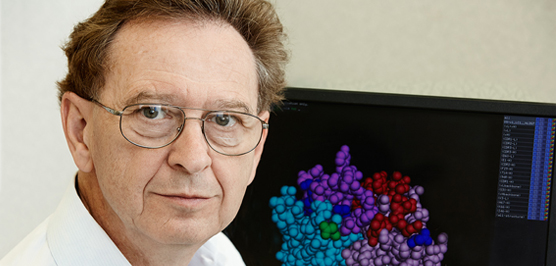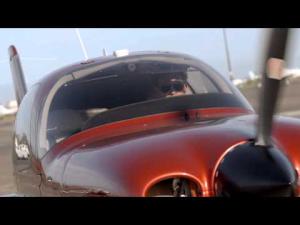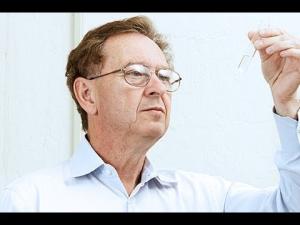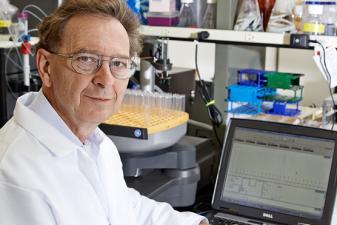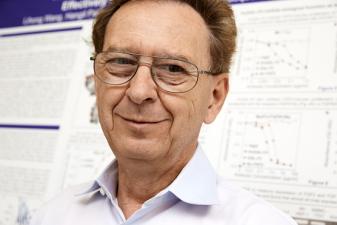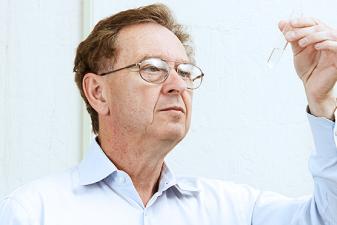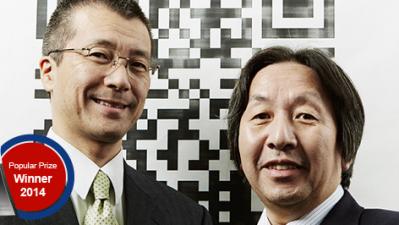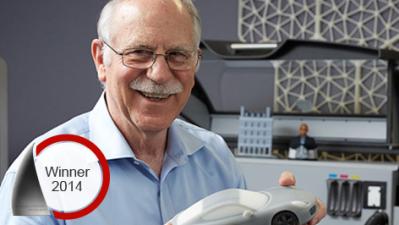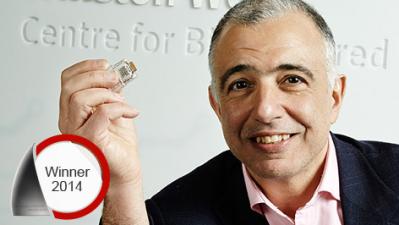Cary L. Queen, Harold E. Selick
Humanised monoclonal antibodies for drugs
Finalists for the European Inventor Award 2014
While the human body can be extremely efficient at recognising and killing off bacteria and viruses like those that cause the common cold or flu, the immune system often can't recognise more serious diseases. In the case of cancer, this means the abnormal cells are allowed to replicate and spread.
Queen and Selick were able to "humanise" antibodies to contain at least 90% human components, making them radically more effective in warding off cancer and other diseases than previous forms of man-made monoclonal antibodies. Along with their system for the large-scale production and clinical use of their humanised antibodies, their invention represents a big step toward defeating some of humanity’s greatest scourges and ushers in a new age of targeted treatments.
Societal benefit
Cancer is the leading cause of death in the world – 7.6 million people die from the disease every year. Cary L. Queen and Harold E. Selick’s humanised antibodies help the body recognise and fight diseases such as cancer without being attacked by the immune system themselves. They have led to at least nine FDA-approved drugs to treat cancer and other diseases. Among them are Herceptin (mainly used to treat breast cancers) and Avastin, the first monoclonal antibody treatment approved for use against lung cancer and as first-line treatment to fight some colorectal, breast and kidney cancers.
Economic benefit
Herceptin and Avastin have seen sales of more than US $6 billion each in 2012. Both drugs have seen a large growth in sales since 2006, with revenues growing by almost 200% in the case of Avastin (from US $2.12 billion in 2006 to $6.29 billion in 2012) and by more than 130% in the case of Herceptin (from US $2.75 billion in 2006 to $6.45 billion in 2012).
PDL BioPharma (PDL), formerly Protein Design Labs, holds the patent for Queen and Selick’s invention. A significant portion of the company’s annual revenues is derived from the royalty payments it receives from its proprietary antibody humanisation technology. The total royalty revenue of PDL BioPharma for eight products based on the antibody humanisation technology was more than US $400 million in 2013.
How it works
Cary L. Queen and Harold E. Selick first compared the amino acid sequence at the very top of the Y of the donor (typically mouse) antibody directly to a collection of 10 to 20 human-based antibodies. From that collection, formed in a lab using recombinant DNA techniques, one is chosen that is most similar in structure to the donor antibody in that region. The human antibody sequence is inserted in place of the donor sequence, allowing it to more effectively lock into a target antigen.
Using sunlight, photocatalysts oxidise (combine chemically with oxygen) organic and inorganic substances, promoting faster decomposition of pollutants and preventing them from accumulating on the surface of a building. Nitrates and sulphates on the cement are easily washed off with rainwater, leaving the surface without the need for chemical cleaning.
The inventors
Harold E. Selick holds a doctorate in molecular biology from the University of Pennsylvania. After holding various leading positions at Protein Design Labs and other biotech companies, he has been CEO of Treshold Pharmaceuticals, a company that specialises in the discovery and development of cancer therapeutics, since 2002. The married father of two has been a member of the United States National Rowing team since 1974.
Did you know?
Media gallery
Patent numbers:
Contact
European Inventor Award and Young Inventors Prize queries:
european-inventor@epo.org Subscribe to the European Inventor Award newsletterMedia-related queries:
Contact our Press team#InventorAward #YoungInventors
